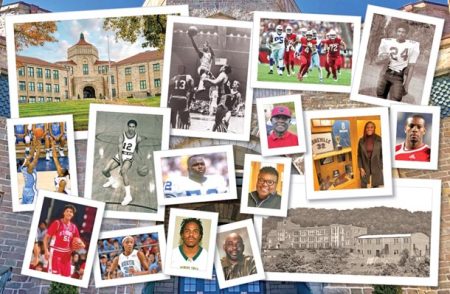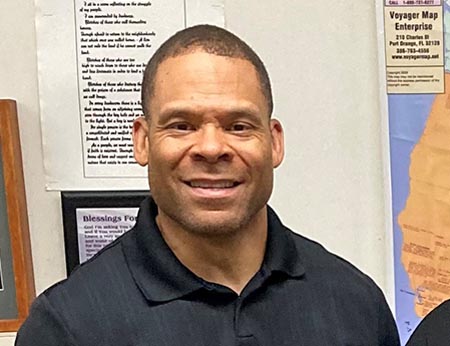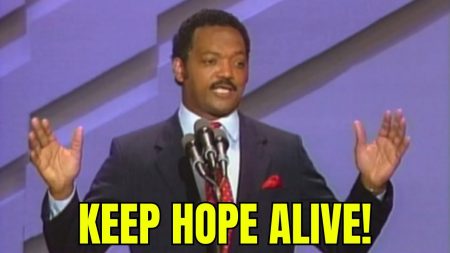Support Ujamaa, Support Health and Sustainability

by Thad Eckard
“Ujamaa,” a Swahili word, might translate roughly as “personhood through one’s solidarity with the community.”
Business partners Calvin Allen and Olufemi Lewis, co-owners of Ujamaa Freedom Market, hope residents feel that unity when they pull their mobile market into neighborhoods they serve: Asheville’s housing developments, low-income, and mixed-income communities.
Allen and Lewis are still working on making that happen, they said.
Ujamaa launched in May, and though it stirred a lot of initial interest, customers did not exactly come running, Lewis explained. “The community was curious when we came through the first couple of weeks,” Lewis said, “but what we’ve seen is that not everybody is wanting to eat healthy foods.”
“It’s going to take a lot of education and presence within those communities,” Lewis added. The two plan a series of cooking demonstrations to start people thinking of new ways to cook. Educating their friends, neighbors, and family has to be a vital part of their marketing, they said.
Toward that end, Lewis sometimes uses the 2008 documentary film Food, Inc.” as a learning tool. The film explores the food industry as a bizarre market phenomenon with no economic imperative for health and safety concerns.
“Everyone should be aware of what is being done to our food,” Lewis said. “People should have a relationship with their food. Otherwise, there is a disconnect that later turns into a long list of health problems.”
Diabetes, cancer, and high blood pressure are all on that list, Allen said. “Bringing access to better food is the reason we are doing this,” he added. Black folks in particular are harming themselves by what they choose to eat. “Black people have the highest levels of hypertension, cancer, and diabetes. That is true for Asheville as well as for Buncombe County,” Allen said.
The American Cancer Society reports that the death rate for all cancers combined remain 33% higher in black men in the United States and 16% higher in black women, compared to white counterparts. The Centers for Disease Control and Prevention (CDC), reports that 43% of black men and 45.7% of black women in the U.S. suffer from high blood pressure.
The fresh fruits and vegetables offered through the Ujamaa Freedom Market bus can help counter those numbers, Lewis said.
“Another big hurdle to getting a consistent consumer base is that we lack funding, so we keep having to take a break with every mechanical issue we have,” Allen added. The bus recently had brake problems they had to stop and fix.
“We have to figure out how to pay for that, and we still don’t pay ourselves anything,” he said.
Lewis recalls that the idea for Ujamaa originated in one of the Women’s Wellbeing and Development Foundation offices, in a meeting with Nicole Hinebaugh, the foundation’s program director. Similar trucks make the rounds selling candy and ice cream in low-income housing developments, they figured, so why not a truck that sells healthful food?
“When I was growing up, we had a produce man or woman who would come through my neighborhood,” Lewis recalled.
“They had produce trucks that came around back when people still used paper food stamps,” Allen said. “Now, the EBT card is a barrier to the process of buying produce from farmers, because you need the machine for transactions.”
That left many communities without access to the sort of food one will find through the Ujamaa market, Allen said.
Ujamaa founders researched the business idea and found that several other similar mobile markets already operate successfully in towns like Nashville, Chicago, Washington, D.C., and in Raleigh. Lewis and a couple other women made up their minds then to bring to the community what they needed, Lewis said.
However, they are finding that sometimes what the community needs is not what they want, Lewis said. Sometimes, they would rather spend their money on cigarettes, he explained.
Still, there are two reasons Allen and Lewis keep pushing forward. “I haven’t always been healthy food conscious, either,” Lewis explained. “It wasn’t an immediate change, and we know changing food habits takes time.”
They also want to help grow what is now a very small number of black-owned Asheville businesses, which is, according to Lewis, only 1.7%.
“Part of the reason we do this is because we want to promote self-sufficiency and economic development in the black community,” Allen said.
Since Allen has a criminal record, he has had a particularly hard time finding work after prison. Even though the incident happened two decades ago, his record often kept him in low-paying jobs, working for other people.
After two years working the night shift at a fast-food joint, Allen still made only $7.65 an hour.
“A lot of people know my background,” Allen said. “I want to be successful with this, so that other people in the same situation can see that, since I was able to do it, maybe they can, too.”
Ujamaa Freedom Market
The communities served by Ujamaa Freedom Market include: Deaverview, Hillcrest, Klondyke, Lee Walker Heights, and Pisgah View public housing developments; Aston Tower, Bartlett and Walton St. Apartments; and the Eagle-Market, MLK Boulevard, River Arts District, Shiloh, and Southside neigborhoods. They also visit the Battery Park apartments, Rainbow Mountain Children’s School, Green Opportunities, and Mtn. Housing Opportunities.
Ujamaa Freedom Market is online at http://ujamaafreedommarket.wordpress.com. The business will accept donations at www.gofundme.com/51o5yo.








